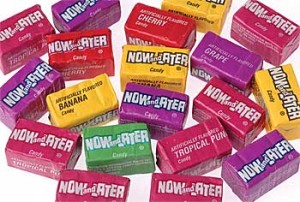

In 2022, one such study-the web-based NutriNet-Santé cohort study-reported cancer incidence for more than 102,000 French adults who completed, multiple times during the study, 24-hour dietary records that included the names and brands of all commercial food products they consumed ( 4). Only a few studies have assessed artificial sweetener intake from all dietary sources instead of using one dietary source as a proxy for total intake. Such studies have not found evidence linking artificially sweetened beverage consumption with cancer in people ( 2, 3). Most epidemiologic studies have used consumption of artificially sweetened beverages as a proxy for (that is, a way for researchers to estimate) artificial sweetener intake. However, these studies can provide important insights that can then be investigated in additional studies that can give more definitive answers. It is important to keep in mind that studies of this type cannot establish cause-and-effect relationships because factors other than artificial sweetener use may potentially explain observed associations. In 2019, an advisory group of 29 scientists from 18 countries gave aspartame a high priority for review by the International Agency for Research on Cancer Monographs program during 2020–2024 ( 1).Įpidemiologic studies (studies of patterns, causes, and control of diseases in groups of people) have examined possible associations between intakes of artificial sweeteners and risks of several cancers in people. Most studies of the other five approved artificial sweeteners have provided no evidence that they cause cancer or other adverse health effects in lab animals. However, mechanistic studies (studies that examine how a substance works in the body) have shown that the ways in which saccharin causes cancer in rats do not apply in humans, and in 2000 it was removed from the list (for more information on the delisting of saccharin, see the Report on Carcinogens, Fifteenth Edition). Laboratory studies have also linked saccharin at high doses with the development of bladder cancer in rats, and in 1981 saccharin was listed in the US National Toxicology Program’s Report on Carcinogens as a substance reasonably anticipated to be a human carcinogen. Although later reviews of those experimental data and evaluation of additional data led scientists to conclude that cyclamate does not cause cancer, it has not been reapproved in the United States (although it is approved in many other countries).

Now and later candy packets plus#
In addition, FDA considers three plant- or fruit-based high-intensity sweeteners to be generally recognized as safe for use as sweeteners in the United States: stevia, luo han guo (also known as Swingle fruit or monk fruit extract), and thaumatin.Ĭoncerns about artificial sweeteners and cancer initially arose when early studies linked the combination of cyclamate plus saccharin (and, to a lesser extent, cyclamate alone) with the development of bladder cancer in laboratory animals, particularly male rats.Īs a result of these findings, cyclamate was banned in the United States in 1969. The results of these studies showed no evidence that these sweeteners cause cancer or other harms in people. Before approving these sweeteners, FDA reviewed numerous safety studies that were conducted on each sweetener to identify possible health harms. Six artificial sweeteners are approved as food additives by the US Food and Drug Administration (FDA): saccharin, aspartame, acesulfame potassium (acesulfame-K, or Ace-K), sucralose, neotame, and advantame. The caloric content of sweeteners used in such tiny amounts is negligible, which is why they are sometimes described as nonnutritive.

What have studies shown about possible associations between specific artificial sweeteners and cancer in people?ĭo artificial sweeteners contribute to/play a role in obesity?Īrtificial sweeteners, also called sugar substitutes, nonnutritive sweeteners, or high-intensity sweeteners, are chemically synthesized substances that are used instead of sucrose (table sugar) to sweeten foods and beverages.īecause artificial sweeteners are many times sweeter than table sugar, much smaller amounts (200 to 20,000 times less) are needed to create the same level of sweetness. Do animal studies suggest a possible association between artificial sweeteners and cancer?


 0 kommentar(er)
0 kommentar(er)
